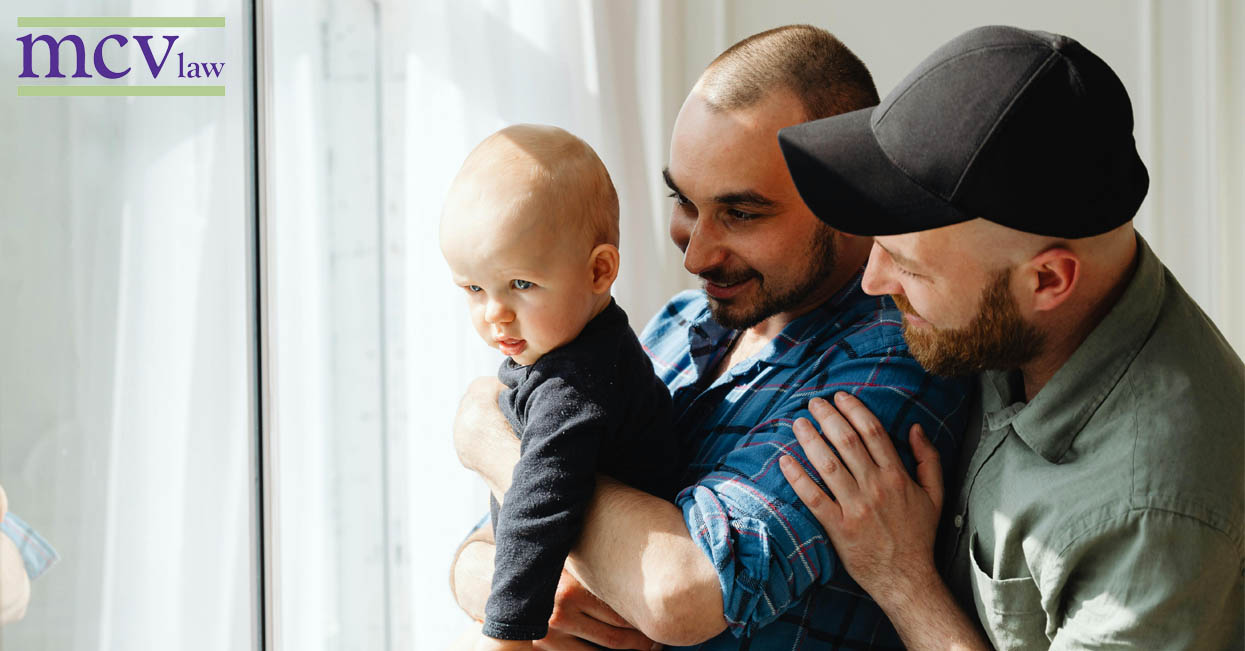
While marriage equality was a significant step forward for LGBTQIA+ individuals and families, legal recognition doesn’t always equate to legal protection, especially when it comes to estate planning. For LGBTQIA+ families, taking proactive steps to legally document your wishes is essential to avoid unintended consequences and ensure that the people you love are the ones making decisions on your behalf.
The Estate Planning Attorneys at MCV Law understand that estate planning is not one-size-fits-all. For members of the LGBTQIA+ community, planning ahead can help avoid gaps in the law, reduce conflict, and protect your legacy.
Get Started with a Free Consultation
Why Estate Planning Still Matters
In New York, if someone passes away without a will or other estate planning documents, their assets are distributed according to the state’s intestacy laws, which prioritize biological and legally adopted relatives. For LGBTQIA+ families, this can lead to painful outcomes. Unmarried partners, non-adoptive parents, or estranged family relationships are not accounted for in default laws.
Even for married same-sex couples, assumptions made by healthcare providers, courts, or family members can complicate matters in the absence of clearly defined legal documents.
Estate planning helps give you control. It helps to ensure that your partner, children, and chosen family are protected both in life and after death.
Key Documents to Include in an LGBTQIA+ Estate Plan
A well-prepared estate plan uses a combination of legal tools that work together to protect your wishes. These may include:
· Last Will and Testament – Outlines how your assets should be distributed and allows you to name guardians for minor children.
· Revocable Living Trust – Offers additional privacy and control over asset distribution while helping to avoid probate.
· Durable Power of Attorney – Appoints someone to manage your finances if you become incapacitated.
· Health Care Proxy and HIPAA Authorization – This allows a person of your choice to make medical decisions for you if you’re unable to and ensures your designated loved one can access medical records and speak with healthcare providers on your behalf.
· Living Will – States your preferences for end-of-life care.
Each of these documents reinforces your intentions and protects your loved ones from being left out of critical decisions.
Have Questions? Get Answers.
Call Our Estate Planning Lawyers at
315-471-1664
Planning for Families with Children
Legal parentage can be complicated in LGBTQIA+ families, particularly when one parent is not biologically or legally related to the child. Without legal safeguards in place, courts may not recognize a non-biological or non-adoptive parent.
Your estate plan can—and should—include:
· Guardian nominations for minor children
· Provisions for inheritance and financial support
· Documentation of your wishes regarding parenting and care
Planning ahead reduces the risk of custody disputes and provides stability and clarity for your children during difficult times.
Transgender Individuals and Estate Planning
For transgender individuals, estate planning also serves as a powerful tool for ensuring dignity. Important considerations may include:
· Clearly stating your preferences for medical care, funeral arrangements, and other sensitive issues
· Protecting against family interference during healthcare or after death
By putting your wishes in writing, you can reduce the risk of others making decisions that do not reflect who you are.
Privacy and Probate Considerations
Many LGBTQIA+ families value privacy when it comes to personal and financial matters. However, when an estate goes through probate, key documents like a Last Will and Testament become part of the public record. A revocable living trust and other non-probate tools can help keep those details confidential while ensuring your loved ones are cared for.
State Recognition and Relationship Status
While New York does recognize same-sex marriage, not all relationship structures receive equal treatment under the law. Domestic partnerships and civil unions do not always confer the same rights and protections. If you are not legally married, estate planning becomes even more crucial.
No matter your relationship status, it is essential to explicitly name your partner or spouse in your legal documents to ensure they have the authority to act on your behalf.
Your Legacy, Your Voice
At MCV Law, we believe that your estate plan should reflect who you are and what matters most to you. Whether you're protecting your partner or ensuring care for your children, we’re here to help you create a thoughtful, customized plan.
Plan for your future. Estate planning is one of the most meaningful ways to protect what you’ve built—and help the people you love. Contact MCV Law today to speak with an Estate lawyer who can help you get the answers you are seeking for your family.
“Paula Highers is very knowledgeable and helpful in the area of Estate Planning. She provided many scenarios for me to consider and promptly answered any questions or concerns that I had. I do not hesitate to recommend her and her staff.”
-Linda M., a satisfied MCV Law client



